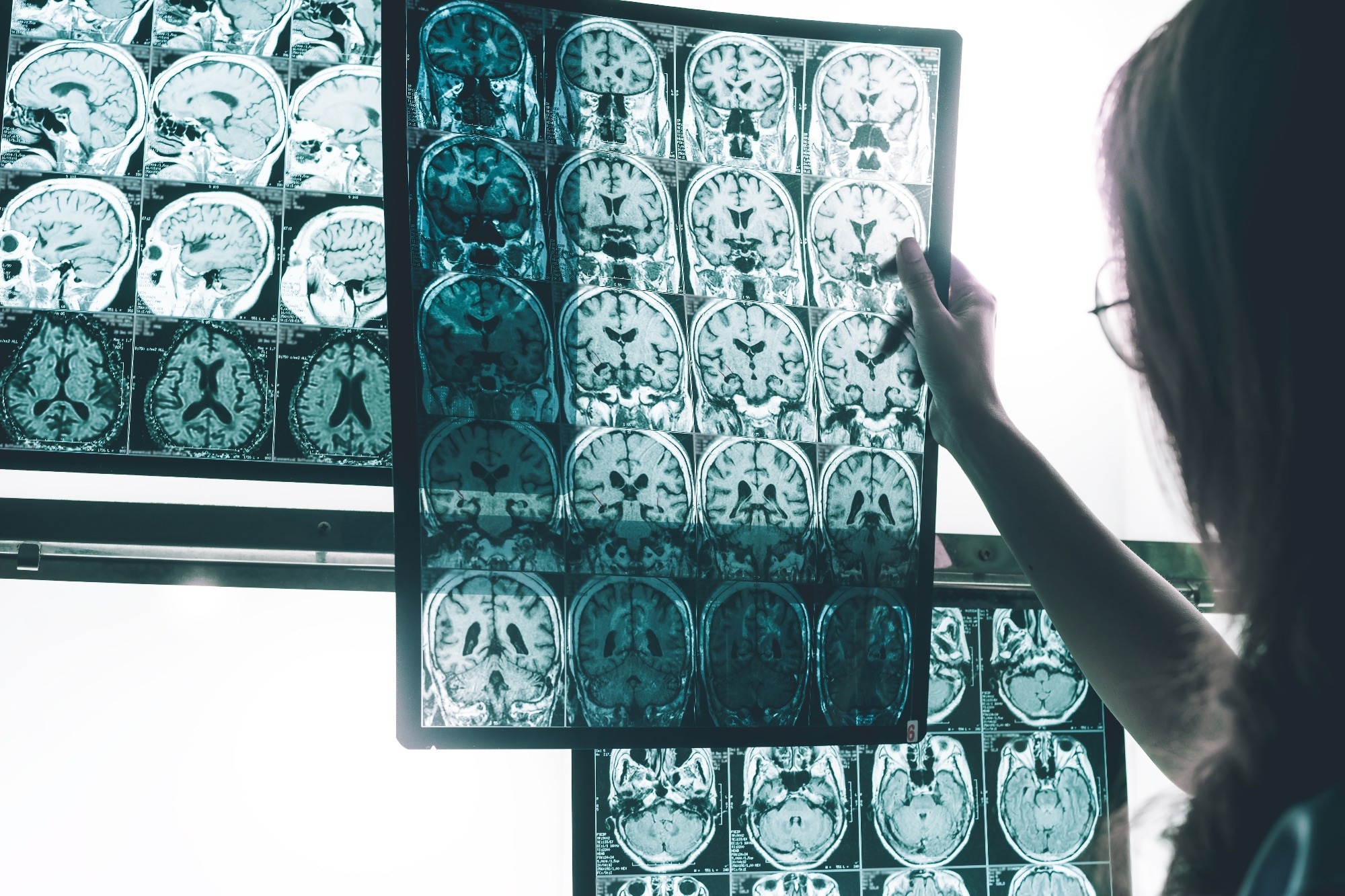As a progressive condition, Alzheimer's disease symptoms develop gradually and become more severe over time. Symptoms can take as long as ten years to become severe enough to cause concern in many people.
The exact cause of Alzheimer's disease is not clearly understood, but patients with the condition have been found to have abnormal protein deposits (amyloid plaques) in their brains, along with fibers called tau tangles and a chemical called acetylcholine. These disrupt neuronal messaging in the brain and eventually cause damage to areas of the brain that affect memory and cognitive processing.
 Image Credit: Atthapon Raksthaput / Shutterstock
Image Credit: Atthapon Raksthaput / Shutterstock
Due to the slow, progressive nature of this disease, it often goes unrecognized in the early stages. Dementia and memory problems are often considered a normal part of aging, and no one test can diagnose Alzheimer's disease. However, an early diagnosis can help people plan and prepare for the future, so people suspected of having the condition should be supported in seeking medical advice.
The first symptom is usually a minor effect on the memory, with an individual tending to forget about a recent conversation, event, or the name of an object or place, for example. Gradually, memory problems worsen, and other symptoms develop, such as confusion, increased aggression, or other personality changes. The affected individual may also experience hallucinations and difficulty with language and speech. As the condition worsens, the patient eventually finds it difficult to move around independently and becomes dependent on caregivers in their day-to-day living.
A more detailed description of the various symptoms that may be seen during the different stages of Alzheimer's progression is given below.
Early stages
- The main symptom is a memory decline, and a person may fail to remember recent conversations or events.
- Forgetting the names of objects or places
- Forgetting when they last said something and repeating themselves
Individuals at this stage of disease may also demonstrate poor judgment and decision-making and show a lack of interest in things. Mood changes such as increased anxiety or confusion may also occur.
Middle stage
Memory problems become more severe, and the patient may even fail to recognize family members or friends. Other symptoms include:
- Obsessive and repetitive behavior
- Delusions
- Speech and language problems
- Disorientation and tendency to forget where they are or why
- Disrupted sleep
- Mood swings and increasing feelings of anxiety and depression
- Poor judgment of distance
- Poor vision
- Hallucination
By this stage, the patient usually requires assistance with daily tasks such as washing, dressing, eating, and using the toilet.
Later stage
Symptoms eventually become severe and can be highly distressing for both the patient and their family and friends.
Hallucination and delusional thinking may worsen, with the patient becoming aggressive and suspicious of people around them. At this stage, patients often pose a danger to themselves and require full-time care.
Other symptoms include:
- Difficulty swallowing
- Difficult moving around independently
- Weight loss
- Incontinence
- Speech loss
- Significant decline in both short- and long-term memory
- Neglect of personal hygiene
The Other Symptoms of Alzheimer's Disease
The Other Symptoms of Alzheimer's Disease
Sources
- "Alzheimer's Disease." Nhs.uk, 10 May 2018, www.nhs.uk/conditions/Alzheimers-disease/Pages/Introduction.aspx www.nhs.uk/conditions/Alzheimers-disease/Pages/Introduction.aspx
- Alzheimer's Association. "Alzheimer's Association." Alzheimer's Disease and Dementia, 2022, www.alz.org/ https://www.alz.org/
- Alzheimer's Association. "Alzheimer's & Dementia Help | Australia | Alzheimer's Association." Alzheimer's Association, 2019, www.alz.org/au/dementia-alzheimers-australia.asp https://www.alz.org/au/dementia-alzheimers-australia.asp
Further Reading
Last Updated: Mar 10, 2024